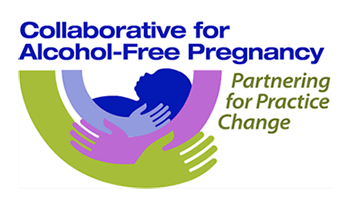Training & Education
Improvements in FASD prevention, identification and care can be enhanced through systematic efforts to educate healthcare professionals. Such efforts will contribute toward the goals of better alcohol screening and intervention for women at risk for an alcohol-exposed pregnancy and identification and treatment for individuals living with FASDs.
Parents, caregivers, school staff, and others who are with children with FASDs every day can benefit from learning more about FASDs, how they affect the child, strategies for working with the child to best enable him or her to meet his or her full potential, and how to locate appropriate services for the affected child and his or her family.
CDC is committed to improving practice, education, and awareness of those who care for women at risk for an alcohol-exposed pregnancy and those who work with individuals living with FASDs. CDC supports the following activities:
Collaborative for Alcohol-Free Pregnancy:
Partnering for Practice Change
CDC works with FASD Practice and Implementation Centers (PICs) and National Partners, to prevent FASDs by improving healthcare practice, education, and awareness among healthcare professionals. CDC recognizes the following strategies as essential among healthcare professionals working to preventing FASDs:
- Use of evidence-based practices, such as alcohol screening and brief intervention (SBI), to prevent alcohol-exposed pregnancy and risky alcohol use
- Care for women at risk of an alcohol-exposed
- Work with people living with FASDs
In 2014, CDC funded FASD Practice and Implementation Centers (PICs) to expand previous efforts from FASD training programs and shift the perspective from individual training for medical and allied health care professionals to impacting healthcare practice at the systems level and focusing on prevention opportunities. Grantees include:
- Baylor College of Medicine
- University of Alaska Anchorage
- University of California, San Diego
- University of Missouri
- University of Nevada, Reno
- University of Wisconsin
In 2014, CDC funded national partners to strengthen strategic partnerships with key national medical societies, professional organizations, and constituent groups. The two main components include: (1) supporting strategies to improve the delivery of care related to FASDs through promotion of training opportunities; creating change around Maintenance of Certification and other continuing educational requirements for provider groups; developing, integrating, and disseminating FASD-related content and messaging; and fostering collaboration among medical organizations and CDC-funded Practice and Implementation Centers to create complementary products, messages, and approaches; (2) ensuring messages are scientifically accurate and consistent with the perspectives of families and individuals living with FASDs; and increasing the availability and reach of community-level FASD resources and materials. Grantees are:
- American Academy of Pediatrics
- American College of Obstetricians and Gynecologists
- University of Pittsburgh, School of Nursing
- University of Texas at Austin, School of Social Work
- National Organization on Fetal Alcohol Syndrome
Collaboration with the Administration for Children and Families

CDC and the Administration for Children and Families (ACF) Children’s Bureau are working together to improve the identification and care of children who were exposed to alcohol and other drugs during pregnancy. The focus of this work is the Prenatal Alcohol and Other Drug Exposures in Child Welfare project.
There are approximately 3.4 million children in the U.S. child welfare system, with 415,000 of these children in foster care. ACF estimates that 6 out of 10 children in foster care come from homes where alcohol and/or other drugs are misused.
Exposure to alcohol and other drugs during pregnancy can cause significant problems for newborns, children, and adolescents. Alcohol can cause life-long birth defects and developmental disabilities such as fetal alcohol spectrum disorders (FASDs). Children with FASDs can have difficulty with learning, controlling impulses, and behaving in appropriate ways. ACF research found that developmental issues can make parenting difficult and frustrating, often leading to periods of abuse or neglect.
The goal of the Prenatal Alcohol and Other Drug Exposures in Child Welfare project is to improve the health and developmental outcomes of children in the welfare system who were exposed to alcohol and other drugs during pregnancy. Over the course of this multi-year project, activities will include the following:
- Exploring current knowledge, attitudes, policies, practices, and needs of child welfare agencies for identifying and caring for children who were exposed to alcohol and other drugs during pregnancy, as well as caring for their families
- Developing resources based on the best available evidence of success for training professional staff, families, and foster families to promote identification, referral, and care of children who were exposed to alcohol and other drugs during pregnancy
- Promoting the best ways to identify, refer, and care for children who were exposed to alcohol and other drugs during pregnancy, as well as care for their families
- Establishing methods for national, state, and local monitoring of children who were exposed to alcohol and other drugs during pregnancy
For more information on children who were exposed to alcohol during pregnancy, visit https://www.cdc.gov/ncbddd/fasd/facts.html.
- Page last reviewed: August 8, 2017
- Page last updated: September 27, 2017
- Content source:



 ShareCompartir
ShareCompartir
